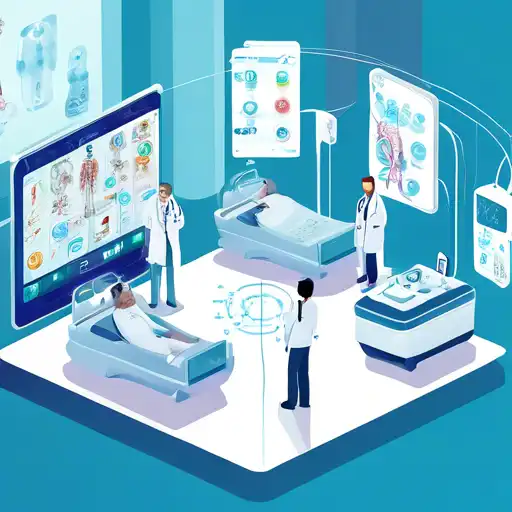Introduction to IoT in Healthcare
The integration of the Internet of Things (IoT) in healthcare is transforming the industry in unprecedented ways. By enabling real-time monitoring, improving patient care, and reducing costs, IoT technologies are setting new standards for healthcare delivery. This article explores the multifaceted benefits of IoT in healthcare and how it's becoming a game changer for patients and providers alike.
Enhancing Patient Care with IoT
IoT devices, such as wearable health monitors and smart implants, are revolutionizing patient care. These devices provide continuous health monitoring, allowing for early detection of potential health issues. For instance, a patient with a heart condition can wear a device that monitors their heart rate and alerts their doctor to any irregularities, potentially preventing a serious health event.
Reducing Healthcare Costs
One of the most significant advantages of IoT in healthcare is its potential to reduce costs. Remote monitoring reduces the need for hospital visits, and predictive maintenance of medical equipment can prevent costly breakdowns. Moreover, IoT can streamline operations, from inventory management to patient flow, further cutting expenses.
Improving Treatment Outcomes
IoT technologies enable personalized medicine by collecting vast amounts of data on patient health. This data can be analyzed to tailor treatments to individual patients, improving outcomes. For example, IoT devices can track a patient's response to medication in real-time, allowing doctors to adjust dosages or switch medications as needed.
Challenges and Considerations
Despite its benefits, the adoption of IoT in healthcare comes with challenges. Data security and privacy are major concerns, as sensitive health information is transmitted across networks. Additionally, the integration of IoT devices requires significant investment in infrastructure and training. However, with proper safeguards and planning, these challenges can be overcome.
Future Prospects of IoT in Healthcare
The future of IoT in healthcare is bright, with advancements in AI and machine learning further enhancing its capabilities. From robotic surgeries to AI-driven diagnostics, the possibilities are endless. As technology continues to evolve, IoT will play an increasingly central role in shaping the future of healthcare.
For more insights into how technology is transforming healthcare, explore our articles on digital health trends and AI in healthcare.
Conclusion
IoT in healthcare is not just a trend; it's a revolution that's improving patient care, reducing costs, and enhancing treatment outcomes. While challenges exist, the potential benefits far outweigh the drawbacks. As we move forward, the integration of IoT technologies will continue to redefine what's possible in healthcare, making it a true game changer for the industry.
